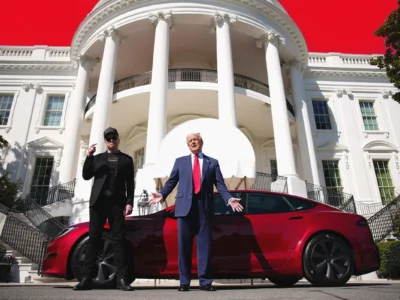The Next Justice and the Fate of the Clean Water Act
A comment by Justice Kennedy reminds us of just how much is at stake.
Every once in a while, we get reminded of just how much damage the conservative Justices could wreak on environmental law. Last week, Justice Kennedy created shock waves with a casual comment during oral argument. In a case that seemed to involved only a technical issue about administrative procedure, he dropped the suggestion that the Clean Water Act just might be unconstitutionally vague. It didn’t seem to faze him that such a ruling would wipe out a statute that has been on the books for over forty years and leave the nation with no protection against water pollution and wetlands destruction. And remember, this is the supposedly most “moderate” conservative Justice on the Court.
This is a truly radical suggestion. Every now and then, a defendant in an enforcement case will argue that the law was unconstitutionally vague under the circumstances of the case. A quick computer search reveals that such a claim has been made by someone about every other year since the law was passed in 1972. Each time, the federal courts have rejected the claiming, finding plenty of evidence that the defendant was on notice of the possible illegality of the conduct. In other words, the vagueness argument has been something of a desperation claim that has consistently fallen on its face. Now this far-fetched legal argument is suddenly being given new life by a Supreme Court Justice. Admittedly, Kennedy was only making a suggestion. But that’s often been how the conservative majority has changed the law, starting with suggestions, then concurring or dissenting opinions, and then a 5-4 decision.
With Justice Scalia off the Court, there’s no immediate danger that the Court will strike down the Clean Water Act. But who knows how a Trump or Cruz appointee would rule on the issue? We could find ourselves overnight with no water pollution law at all. Keep in mind the conservative majority didn’t hesitate to rip the heart out of the Voting Rights Act after it had been on the books even longer. But, more likely, we could find the vagueness argument being used to justify judicial decisions that “clarify” the statute by carving away huge chunks.
Reader Comments
3 Replies to “The Next Justice and the Fate of the Clean Water Act”
Comments are closed.







Just a quibble: Even before the Clean Water Act there was quite a bit of water pollution law in the US (see http://environmentlawhistory.blogspot.com/search?q=water+pollution), and presumably there would be even if the Act (or part of it) were to be struck down.
Another bizarre thing about that comment is that Justice Kennedy was referring to a Clean Water Act provision that he himself has repeatedly interpreted and repeatedly found to have a clear meaning. The liberal justices have argued that the same provision is sufficiently ambiguous to justify Chevron deference, but Justice Kennedy has twice rejected that position.
You’re not actually making an argument here for the constitutionality of the Act. Rather than being defensive, how about making an argument? Justice Kennedy’s suggestion was also made by an amici brief filed by the California Farm Bureau and others; you might start there:
http://www.scotusblog.com/wp-content/uploads/2016/03/15-290-bsac-California-Farm-Bureau-Federation.pdf